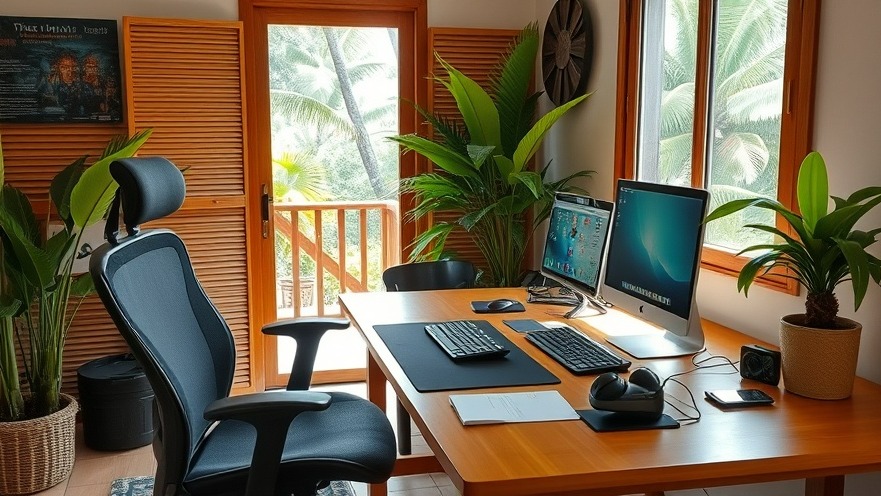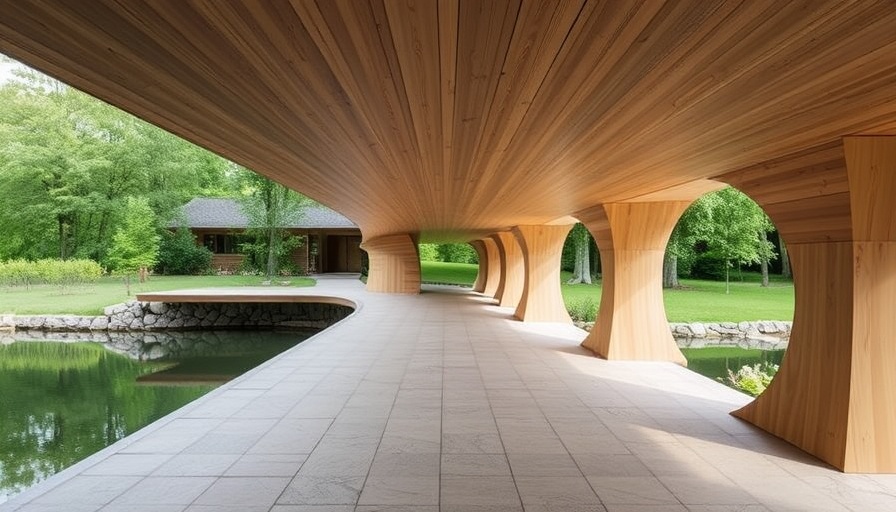
Embracing a Formidable Future: Designing Spaces in a Warming World
As climate change continues to affect our living conditions, the concept of creating sustainable and livable workspaces becomes increasingly vital. In a recent project by the Academy of Art University, students explored innovative design solutions that confront the realities of rising temperatures, particularly in desert environments. This intriguing initiative highlights the urgent need for adaptive structures and workspaces that ensure comfort and functionality amidst changing climatic challenges.
The Shift to Ergonomics in Hot Climates
For digital nomads, establishing an ergonomic workspace is paramount, especially when navigating environments where heat is a significant factor. Ergonomics is not just about the physical aspect; it involves designing workspaces that enhance productivity while keeping comfort levels in check. The students at the Academy of Art University took this into consideration by integrating elements that respond to extreme temperatures while promoting health and wellness. By employing natural materials, incorporating thermal mass into designs, and maximizing shade, their work reflects a modern approach to workspace creation that prioritizes the user’s well-being.
Innovative Solutions for Remote Workspaces
One standout concept presented by the Academy revolves around modular workspace units that can adapt to varying climatic conditions. These pods are not only portable but also equipped with features like adjustable ventilation and temperature control, allowing digital nomads to tailor their environment for optimal productivity. This level of adaptability is indispensable for those who travel frequently and require a consistent but flexible workspace.
Connecting Community and Sustainability
Another critical aspect highlighted in the project is the importance of community connection in arid climates. Students designed spaces that encourage interaction among remote workers, integrating communal areas alongside private workstations. This design fosters collaboration while maintaining the necessary distance that digital nomads often appreciate. Understanding that a supportive community can significantly influence one’s productivity is a valuable insight for remote workers who might otherwise feel isolated.
Future Insights: The Role of Technology in Climate Adaptation
Technology plays a crucial role in creating comfortable remote work environments under challenging conditions. Innovations in renewable energy sources, such as solar panels and portable power solutions, can make a huge difference in how we set up our workspaces. The Academy of Art University project showcased examples of how tech can be seamlessly integrated into workspace design. For digital nomads, understanding and leveraging such technology is essential, especially when every moment counts in their typically fast-paced lifestyle.
Practical Tips for Digital Nomads
As you embark on your next remote work journey, consider these practical tips to create an effective workspace regardless of heat or location:
Choose Lightweight, Portable Gear: Invest in collapsible furniture and equipment that’s easy to pack, set up, and move.
Maximize Natural Resources: Select sites with shade and natural cooling sources, such as trees or cooling breezes.
Temperature Regulation: Utilize portable fans and adjustable window shading to keep your environment comfortable.
These enhancements to your workspace not only support your productivity but also prioritize your overall health and comfort as you navigate different locations.
Summary
Sustainability and comfort are becoming increasingly integrated into the way we design workspaces, particularly for digital nomads facing rising heat in desert communities. The innovative projects from the Academy of Art University embody this shift, providing insights that are valuable as we adapt to our warming climate. Understanding ergonomic principles, embracing modular solutions, and leveraging technology will not only improve your work life but can encourage a healthier, more sustainable approach to remote work.
 Add Row
Add Row  Add
Add 




Write A Comment